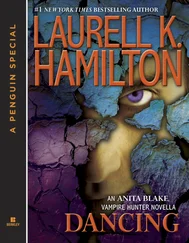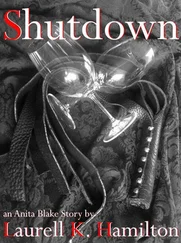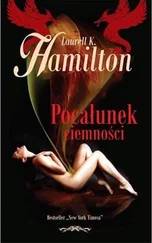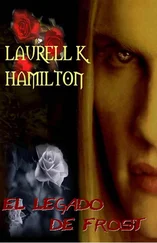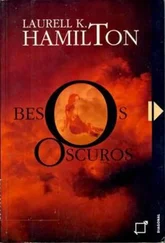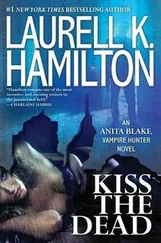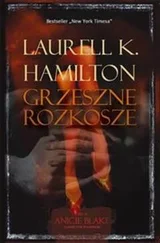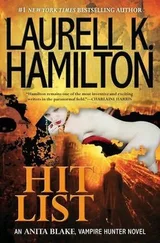“Yes,” he said, drawing out the word as though it made him uncomfortable. “You were unwell.”
“Unconscious, you mean.”
Mickel rubbed the back of his neck. “Not quite.”
“You were screaming,” Rumble said, turning to look at her. “It’s how we found you. Just standing as you please in front of the border of that cursed forest, making the most bloodcurdling sound I’ve ever heard. And I’ve heard plenty,” he added, a moment later.
Sally stared at him. “I was… screaming.”
“Quite a fighter, too,” Patric said, guiding his horse past the wagon.
She blinked, startled. “And I fought?”
“You were delirious,” Mickel told her. “Simple as that.”
“You were trying to enter the Tangleroot,” Rumble said. “Almost did. Took all three of us to hold you down.”
“Stop,” Patric called back, over his shoulder. “You’ll scare her.”
“No,” Mickel said slowly, watching her carefully.
“No, I don’t think you will.”
Sally, who had no idea what her expression looked like, had nonetheless been thinking that it would have been a great deal easier if they had just let her go. Perhaps more terrifying, too, given what she remembered of her dream. If it had been a dream.
But she did not like having her thoughts written so clearly upon her face. She studied her hands, noting the dirt under her nails, and then looked back up at Mickel. He was still watching her. She studied him in turn, and suffered a slow rush of heat from the boldness of his gaze—and her own.
Gatis was a rambling village built into the high hills of a river valley, a place that had belonged to shepherds for hundreds of years, and still belonged to them; only now they lived in comfortable cottages with fine large gardens bordered by stone, and fruit orchards growing on the terraced hills that dipped down to the Ris, its winding waters blue and sparkling in the late afternoon sun.
Sally had been to Gatis years before with her family—while her mother was still alive. The villagers were known for the quality of their yarn and dyes, and the fine craftsmanship of their weaving. Her cloak and vest were Gatis-made, and likely the cloth of her dress, as well. She pulled up her hood as they neared the village, hoping that none would remember her face. She had been only ten at the time. Surely she looked different.
The road sloped upward around a grassy hill covered in boulders, and at the crest of it, Sally saw the border of the Tangleroot. It was far away, but there was no mistaking those woods, however distant. The border was black as pitch, a curving wall of trees that looked so thick and impenetrable, Sally wondered how it would even be possible to squeeze one arm through, let alone travel through it.
Seeing the forest was like a slap in the face. She had known that one of the borders to the Tangleroot was near this village, but looking at it in broad daylight twisted in her gut like a knife. Sally felt afraid when she saw the faraway trees; fear and hunger. She closed her eyes, hoping the sensation would fade, but all she saw was the little girl, running fleet-footed down the moonlit path.
It made Sally wonder, briefly, about her mother—if it was true that she had been inside those ancient woods; and if so, what she had seen. The young woman wondered, too, if coming to Gatis had bothered her mother, what with the Tangleroot so close. She had died soon after that trip, though until now, Sally had never thought to associate the two. Perhaps there was still no reason to.
A hand touched her shoulder, and she flinched. It was Mickel, riding close beside the wagon. He looked away from her at the distant forest, sunlight glinting along the sharp angles of his face, and highlighting his brown hair with dark auburn strains.
“Not all trees are the same,” he murmured. “Something I heard, growing up. Some trees are bark and root, and some trees have soul and teeth. If you are ever foolish enough to encounter the latter, then you’ll know you’ve gone too far. And you’ll be gone for good.”
Sally had heard similar words, growing up. “It seems silly to give a forest so much power.”
He shook his head. “No, it seems just right. We are infants in the shadows of trees. And those trees… are something else.”
“Some say they used to be human.”
“Souls stolen by the forest of a powerful queen. Roots that grew from bones and blood, and imprisoned the spirits of an entire people.” Mickel smiled. “I’ve heard it said that red hair was a common trait amongst them, and that descendents of those few who escaped the curse, who battled the queen herself, still bear that mark.”
Sally brushed a strand of red hair self-consciously from her eyes. “You and your stories. How could something like that be true?”
“Maybe it’s not. But either way, something about you is affected by that place, even by looking at it.”
She began to deny it. He touched a finger to her lips. The contact startled her, and perhaps him. His hand flew away as though burned, and something unsettled, even pained, passed through his gaze. Sally suddenly found it hard to breathe.
“You think too much in your eyes,” he said quietly.
“I can practically read your thoughts.”
“How terrifying,” she replied, trying to be flippant; though hearing herself was quite different: she sounded serious as the grave.
A rueful smile touched his mouth, and he stroked the neck of his horse. He hardly used a saddle, just a soft pad and a molded piece of pebbled leather. He held the reins so lightly that Sally thought he must be guiding the horse with his legs. “Yes, it is frightening.”
Sally fought the urge to touch her warm cheeks. “Why do you do this?”
“Perform? Create masks for a living? Haven’t you ever wanted to be someone else?” Mickel’s smile deepened. “No, don’t answer that. I can see it in your eyes.”
Sally thought she should start wearing a blindfold. But before she could ask him more, he said, “So what are you useful for? Are you good for anything?”
“I can read,” she said, stung. “Garden, cook, ride a horse—”
“All of which are admirable,” he replied, far more gently. “But I was referring to skills that would be useful in a… performance setting.”
“Performance,” she echoed, eyes narrowing; recalling overheard discussions between her father’s men about “performances” involving women. “What kinds of skills do you think I might have?”
Rumble, who had been silent, began to laugh. Mickel shook his head. “Reading, I suppose, would be enough. Precious few can do that. If you know your letters, you might earn your keep writing messages that we can carry along the way.”
“Earn my keep? You expect that I’ll be traveling with you for much longer?”
Rumble glanced over his shoulder and gave the man a long, steady look. As did Patric, who was suddenly much closer to the wagon than Sally had realized. Both men had messages in their eyes, but Sally was no good at reading them. Mickel, however, looked uncomfortable. And, for a brief moment, defiant.
It’s all right, she wanted to say. I’ll be gone by tonight.
Ahead, a small boy stood in the road with several sheep and a dog. He stared at them as they passed, and Mickel’s hands were suddenly full of small colorful balls that flew through the air with dazzling speed. He did not juggle long, though, before catching the balls in one large hand—and with the other, tossing the boy something that glittered in the sun. A silver mark, though the cut of it was unfamiliar. The child stared at it with huge eyes. Sally was also impressed, and puzzled. The coin, though foreign, would buy the boy’s family at least a dozen fine sheep, or whatever else they needed.
Читать дальше

